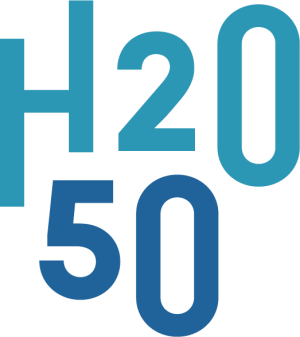“Water, in all its forms, is what carries the knowledge of life throughout the universe.” - Anthony T. Hincks
Network of multidisciplinary thinkers and doers
Our world has long been characterised by the gravitation towards specialisation in certain areas. Water is no exception. As a result, disciplines that were naturally connected to each other were separated in intellectual terms. Specialism resulted in a fragmentation of knowledge and actions.
Specialisation did, however, provide much and deeper knowledge of the disciplines and was well able to provide effective support and orientation in the envisaged water management. Nonetheless, the problems and challenges now arising from climate change and new economic realities require more than specialist knowledge. It is becoming increasingly clear that the disciplines are an inseparable part of a larger system. This means that solutions to the challenges need to be approached from the perspective of multiple disciplines, in order to optimise the synergy effects. In other words: a systemic way of thinking and acting is essential to arrive at new insights and solutions. This offers an opportunity to restructure the existing specialisms, complement them with new areas of knowledge, and prepare them for systemic water management for the 21st century.
Network of multidisciplinary thinkers and doers
Water is the basis of our existence here on earth, and it is therefore logical that we see it almost everywhere in our society. In our food supply and food processing, in the built environment, in transport, in the recreational sector, energy, etc. The knowledge and insights we have about water are brought together in a central place, physical or otherwise. This allows the various disciplines to learn from each other, develop crossovers, etc. Apart from enriching and sharing knowledge, we can also consider and give room to the switch from conceptual thinking to formative thinking. In other words: how do we translate the knowledge from thinking to doing? The platform/campus will also initiate practical translations of knowledge and ideas - so that changes, improvements and innovations can actually take place.
Exploring what a water campus looks like
If a central water site can help better identify and address water challenges, what would it look like? Is it a physical campus? A digital platform? Or is it a combination of both? What do we need to do, and what not? What parties (organisations and people) should/could be part of this? What would it cost to set up and maintain such a site?
Can we draw up a project business plan to set up a network of interdisciplinary and transdisciplinary thinking on water, and what parties and resources do we need to assess this?
Download all catalysts
Disclaimer
The Flemish Environment Agency (VMM), De Vlaamse Waterweg, De Watergroep, Aquafin, the Flemish Department of Environment, Farys, Pidpa, water-link and VITO - Vlakwa have created the space for a group of fresh thinkers to develop a systemic view of water, and to challenge the water sector to shape a futureproof water system. The formulated ideas are not those of the initiators, nor do they represent their stands. However, they are considered valuable as an inspiration for the future of our water system.
This work is licensed under a Creative Commons Attribution 4.0 International License.
